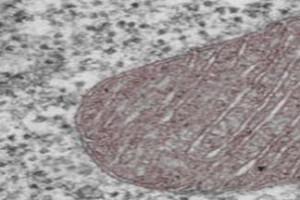Mitochondria are akin to power plants that supply energy to a city. With normal power production, the city functions smoothly and even grows. When the power plants go offline, urban expansion comes to a halt. In the case of cells with malfunctioning mitochondria, the factor that curbs growth is not a lack of energy, but another stalled pathway—aspartate synthesis. This non-essential amino acid contributes to protein production and is one of the major precursors for the nucleotides that compose DNA. Mitochondrial dysfunction plays a role in a host of relatively rare disorders as well as neurodegenerative disorders, including Parkinson’s disease.
We identified aspartate’s role in cell proliferation through an unbiased CRISPR-based genetic screen. When we inactivated all 3000 metabolic genes in individual cells with compromised mitochondria, we determined that an enzyme in aspartate synthesis is essential for cell multiplication. Adding aspartate to serum around the cells rescued them.
http://www.cell.com/cell/abstract/S0092-8674(15)00853-300853-3


